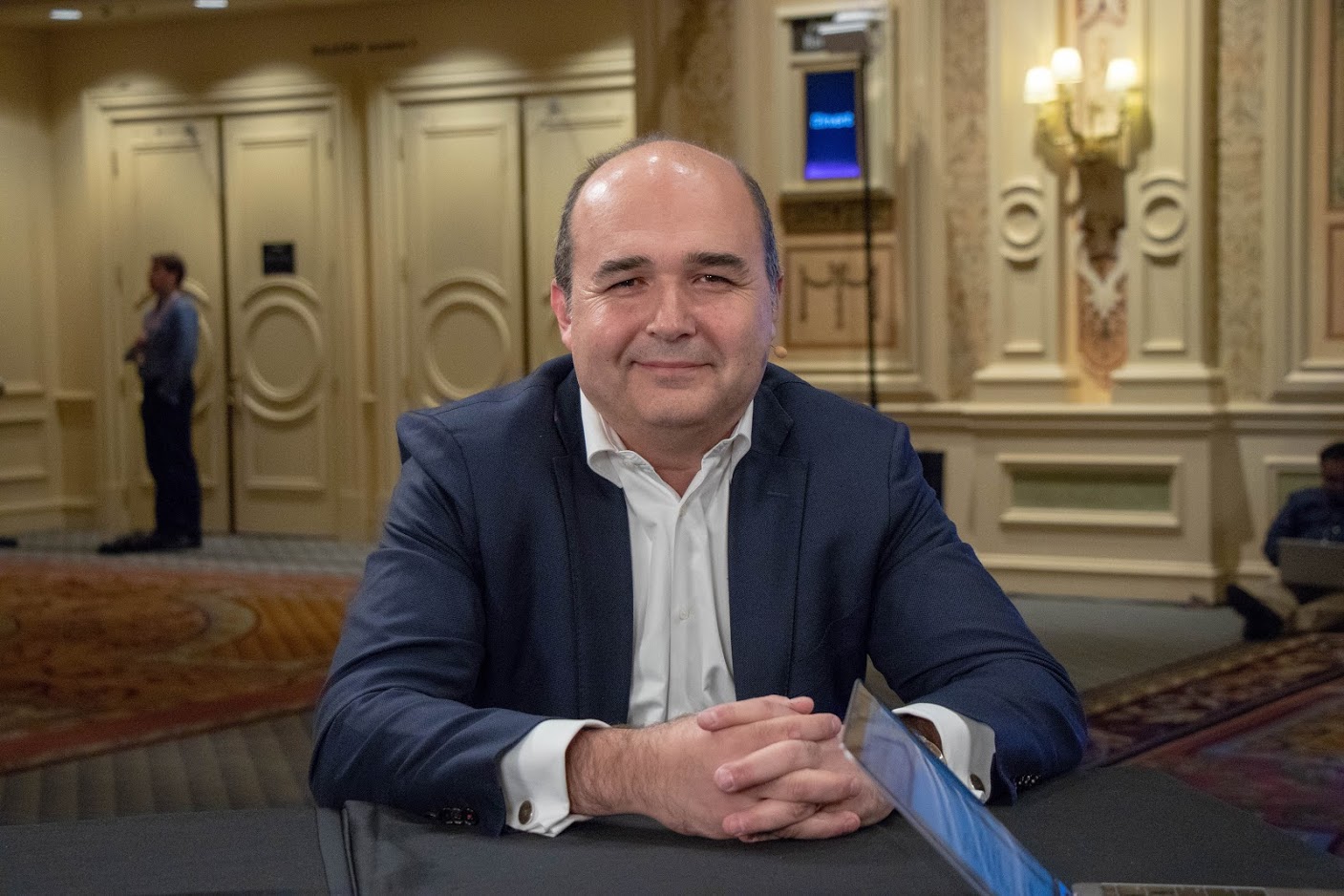 EMERGING TECH
EMERGING TECH
 EMERGING TECH
EMERGING TECH
 EMERGING TECH
EMERGING TECH
In today’s technology-dominant society, it might be tempting to think current tech exists in a vacuum. However, technology governs and is governed by the world around us, and these external factors make all the difference when it comes to the total impact of disrupted markets and the investments in modern computing.
“I think what’s driving that, some things are geopolitical in nature,” said Gene Reznik (pictured), chief strategy officer at Accenture LLP. “Everything between U.S. and China relations, what’s happening in Europe — all of that.”
Reznik spoke with Rebecca Knight (@knightrm), host of theCUBE, SiliconANGLE Media’s mobile livestreaming studio, during the AWS Executive Summit in Las Vegas. They discussed cloud-driven disruptions within various industries and how companies can drive innovation while maintaining their culture. (* Disclosure below.)
Given the tumultuous state of the political, technological and business climates, companies young and old are under constant pressure to adapt for a software-driven experience. “Different industries are under different amounts of pressure and disruption. Some, like the music industry and book publishing and, currently, retail, are under tremendous pressure, and many have not responded well,” Reznik said.
Of course, transforming a company takes time and must happen organically. In addition to adopting new technology, companies must deal with how the employees, culture and shareholders will be affected.
“While a lot of it is technology, the people side, the culture side, the organizational side, the incumbency dimension, the shareholders — all those things that make change very difficult — are at the core of the transformation agenda,” Reznik stated.
So which kinds of companies transform their cores effectively? Strategic investment is a major part of the shift, according to Reznik. “As the pressure mounts, the ability to invest diminishes for most companies. And they don’t have the room to invest in the business that their future depends on,” he said.
Worse still, companies have to find ways to make the capacity to invest, and they have to invest in the right things. Unfortunately, some of these decisions have included layoffs and investments that ultimately hampered companies from getting where they wanted or needed to be.
“So those two elements, creating the room to invest, then investing it in the right things and the right ways, is what we find is key,” Reznik stated.
Due to the high costs of digital transformation, Reznik believes existing companies need to create partnerships where they benefit. Because a business can’t outrun or outguess disruptions, these companies should make ecosystems to power their businesses.
“There’s some models emerging in terms of co-innovation. What Amazon has done with Berkshire Hathaway and J.P. Morgan Chase is an example of partnering to transform healthcare,” Reznik said.
At the same time, partnering companies need to find ways to align their incentives and figure out how to jointly benefit from their relationship, he concluded.
Watch the complete video interview below, and be sure to check out more of SiliconANGLE’s and theCUBE’s coverage of the AWS Executive Summit. (* Disclosure: TheCUBE is a paid media partner for the AWS Executive Summit event. Neither Accenture LLP, the event sponsor, nor other sponsors have editorial control over content on theCUBE or SiliconANGLE.)
THANK YOU